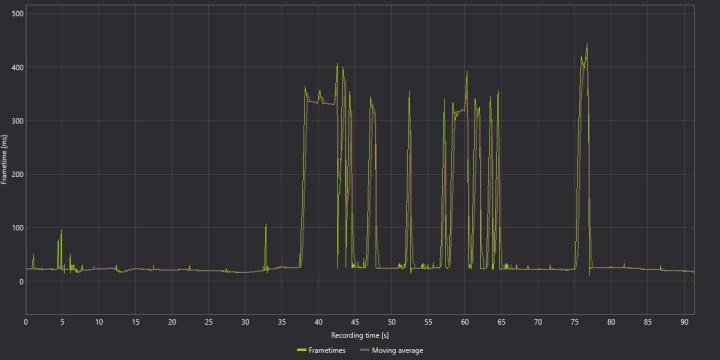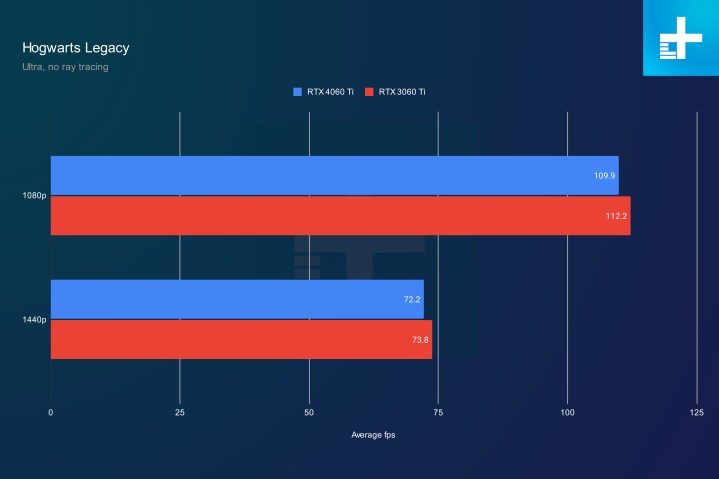
I wouldn’t spend less than $500 on a new graphics card in 2024. I understand that budget is out of the question for many PC gamers, and I’m not advocating for higher GPU prices going forward. But with the games available today, it just doesn’t make sense to settle for a budget GPU that will struggle the moment you take it out of the box.
We got a taste of the problem last year with games like The Last of Us Part One, Resident Evil 4, and Hogwarts Legacy, and the issue is cropping back up again with Horizon Forbidden West. I’m talking about VRAM in modern GPUs. At this point, you’re much better off saving up for a more expensive GPU, waiting until the next generation arrives, or digging deep on last-gen options.
Why are you buying a new GPU?
If you pay attention to PC hardware reviews — particularly the YouTube megamind of reviewers — you probably already have a sour taste in your mouth for 8GB graphics cards. I get it. I don’t agree that 8GB GPUs are completely obsolete, however.
That’s still more than enough memory for the vast majority of PC games, and depending on what you play, you may never encounter an issue with an 8GB graphics card.

There just isn’t a strong argument for buying a brand-new 8GB graphics card in 2024. I’m mainly focused on the crop of options between $250 and $400 from AMD and Nvidia — cards like the RX 7600 and RTX 4060. AMD has its RX 7600 XT with 16GB of VRAM at $350, but that price is too high for how weak that card is compared to the rest of the market.
Although a new GPU will improve your performance across the board, you mainly slot in a new graphics card to enable new games on your PC. Maybe it’s playing Cyberpunk 2077 on a higher graphics preset with features like DLSS, or it’s unlocking the slate of demanding PlayStation exclusives now available on PC like The Last of Us Part One and Horizon Forbidden West. In these premier releases, over and over again, we see that 8GB of VRAM simply isn’t enough.
More than lower performance
Even considering the budget status of these graphics cards — and the natural performance concessions as a consequence — they’re a poor investment. In generations past, you could rely on a budget workhorse GPU for years. Cards like the GTX 1650 could provide several years of gaming for a low price. Your overall performance would go down as more demanding games released, but you could still play them.

The VRAM issue is a different beast. In titles like Horizon Forbidden West and Diablo IV, you’ll run into lower performance, but the more pressing issue is stutter. Particularly when entering new areas, the VRAM buffer will fill, vastly lowering your frame rate briefly. It’s not a great play experience, and it’s definitely worse than just playing a game at a lower frame rate.
Make the right investment
You’re not just out of luck, thankfully. Given how late in the current generation we are, you can find last-gen options for very low prices on the secondhand market. Cards like the RTX 3080 are available for around $400 on the secondhand market, while AMD’s RX 6750 XT is commonly available for around $300 pre-owned. Both come with more than 8GB of VRAM, and they’re solid performers compared to current-gen options at the same price.

The other option is to wait. Rumor has it that AMD will release its next-gen GPUs in the middle of this year, while Nvidia is expected to follow up at the end of the year. Even if next-gen GPUs don’t solve the VRAM problem, they’ll push prices down, allowing you to pick up a card like the RTX 4070 or RX 7800 XT for a lower price.
At this point in 2024, when we have a dozen or more examples of new games stressing 8GB graphics cards and more likely on the way, it’s not a good idea to invest in a budget graphics card that barely crosses the mark. It’s a shame that’s how things are this generation, but the PC gaming market is caught in an awkward spot — games are stressing hardware that current-gen budget GPUs just don’t have.
This isn’t a new story, though. Given what we’ve seen from games and backlash for cards like the RTX 4060 Ti, I’m hopeful that next-gen options will address the VRAM concerns PC gamers have right now. Until they show up, I’d hold off on budget GPUs with 8GB of VRAM if you want to get your money’s worth.




